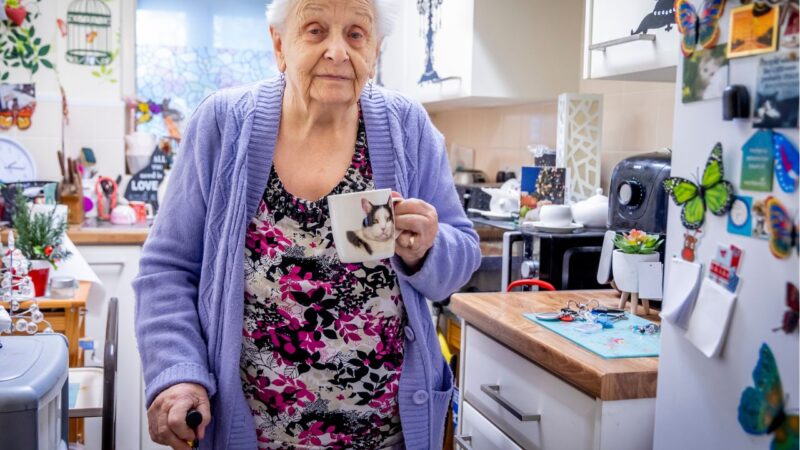Towards the end of his life, 86-year-old George* wanted just one thing – a humble bath. Making that happen was a small achievement by a project which is improving care for Merton’s most vulnerable residents – in a big way.
GP Dr Shinal Patel of Stonecot Surgery in Morden explained: “George was receiving palliative care but his condition had deteriorated quite significantly over a two-week period.
It was his last request so the district nurses and occupational therapists made it happen for him.
“One of our clinicians went in and he told them what really wanted was the feeling of water over his head as he’d been bed-bound for a while. It was his last request so the district nurses and occupational therapists made it happen for him. Physically getting him out of bed into a bath had been deemed dangerous, but they managed to help him one last time and he was happy.”
George was helped as part of a pilot scheme launched in January 2023 with a £155,000 grant from NHS South West London’s innovation fund. It brings together Age UK Merton, St Helier Hospital and Central London Community Healthcare NHS Trust (CLCH) working with GPs from Morden and South West Merton primary care networks.
The idea is to improve care for people who are housebound and frail – those who need a high level of support to manage daily life. This group includes some younger people with neurological conditions. However, many are elderly with a range of chronic diseases including heart failure, COPD, diabetes and dementia.
GPs identify people who would be suitable for the programme based on their knowledge and practice data. Care coordinators contact the patients and their families to get permission to include them in the programme – explaining that it could mean additional help for them and their carers.
Weekly meetings bring together clinicians from GP practices with Age UK Merton, St Helier hospital’s outreach team and the community services team from CLCH.
We know people don’t want to be in hospital and that it can lead to huge deterioration in their condition. So, one of our goals is to keep people independent at home.”
They discuss each individual case and decide which doctor, nurse, therapist or community worker should visit. For some people, more than one visit is needed, while others require a joint visit by different professionals.
Dr Elizabeth Higham of Central Medical Centre, Morden explained: “We proactively choose the best member of the team to visit each patient.
“During the visit we ask questions to assess their medical, psychological, social and general needs. It’s a very holistic process so we might review their memory, how they are coping at home and what support they need, whether practical, financial or to improve their safety.
“With their consent, we also look at advance care planning if that’s appropriate. We talk about their future health and what their wishes are for the end of their life.”
Dr Patel added: “One of the aims is to avoid hospital admission. We know people don’t want to be in hospital and that it can lead to huge deterioration in their condition. So, one of our goals is to keep people independent at home. This is better for them but can also address pressure on services.”
We were able to work together, liaising with his hospital medical team but also checking to see what benefits and financial support they could get to solve some of the practical things.”
Dr Higham gave another example: “We saw an elderly man with a chronic condition. A nurse practitioner from St Helier Hospital visited and found that alongside his physical ill health there were issues with his property, including with damp. He was being cared for by his wife and they were also struggling financially – so much so that they were selling belongings to pay bills, which was having a real impact on them.
“We were able to work together, liaising with his hospital medical team but also checking to see what benefits and financial support they could get to solve some of the practical things.”
She added: “We try not to compartmentalise the patients’ problems but to approach everything they’re struggling with. We may not be able to solve it all straight away, but at least we can start to address their other concerns because we know those things have an impact on their health.”
With Age UK Merton a part of the programme, the team works closely with its Living Well service, which also offers wellbeing ‘MOTs’ to improve quality of life, taking in everything from financial worries to tackling isolation.
An added benefit of the programme is the way it helps all the partners increase their knowledge of the medical and social difficulties that affect some patients, upskilling them and helping them manage other cases in future.
Says Dr Higham. “One of the big benefits is just how refreshing it’s been to work in a really collaborative way with these other organisations. And I think about just how much we’ve all learned from it – which is also really good for the patient experience.”
* not his real name
Read more about NHS South West London Investment Fund.
